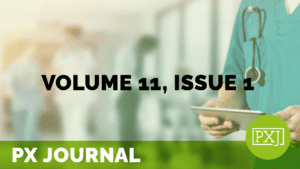Study on Doctor-Patient Identity Construction from the Perspective of Narrative Medicine
Published May 5, 2025


This study delves into the construction of identities and the linguistic strategies employed within the doctor-patient interactions through the lens of narrative medicine, with text analysis methodology utilized. The research findings unveil linguistic strategies employed by doctors and patients within the narrative medicine framework in shaping their identities during communication. In the establishment of their collective identity, doctors concentrate on minimizing hierarchical disparities with patients. While establishing relational identities, doctors display attentiveness to patients’ emotional states, primarily utilizing medium and low modality. They consciously avoid using imperatives with assertive tones, creating space for collaborative negotiation. When shaping personal identities, doctors cultivate a warm, intimate, and amicable persona, which helps to foster a sense of empathy and bridge the connection between doctors and patients. Patients, in turn, employ various linguistic forms to express respect towards doctors, thus contributing to the maintenance of a harmonious relational identity. Additionally, in cultivating their personal identities, patients may share personal experiences and express negative emotions to garner more attention from doctors. In summary, the communication between doctors and patients involves the construction of multiple identities, collaboratively fostering a harmonious doctor-patient relationship within the narrative medicine framework. The linguistic strategies employed by both parties contribute to the establishment and maintenance of these identities.
Related content
-
Quality & Clinical Excellence
Co-designing of Patient Safety Incident Disclosure Process in Primary Healthcare System in Qatar
Published April 30, 2024

The importance of disclosing a patient safety incident to the patient involved is recognized. In Qatar, there is no legal requirement for disclosure. The primary health care system in Qatar includes 30 health centers located around the country, managed by the Primary Health Care Corporation (PHCC). Over 63 nationalities of staff deliver care in the
Learn more -
Infrastructure & Governance | Quality & Clinical Excellence
Patient Advocacy Community Connection Call: Disruptive Behavior Response Plan
Published September 11, 2024

Disruptive behavior undermines the relationships, communication, and teamwork needed to provide high-quality patient care. To promote a culture of safety, health care organizations must address the problem of behaviors that threaten the performance of the health care team. Join the Patient Advocacy Community for an opportunity to discuss disruptive behavior response plans. Connection Calls are
Learn more -
Patient Family & Community Engagement | Quality & Clinical Excellence
Our Journey to Improving the Experience of Patients 65+
Published March 11, 2025

Join us for a panel discussion on enhancing patient experience for patients 65 and older. Experts will explore key population statistics, care challenges, and insights from consumer feedback to better understand patient needs. Learn strategies to improve communication clarity and address What Matters Most at every stage of care. Panelists will share lessons from a
Learn more
